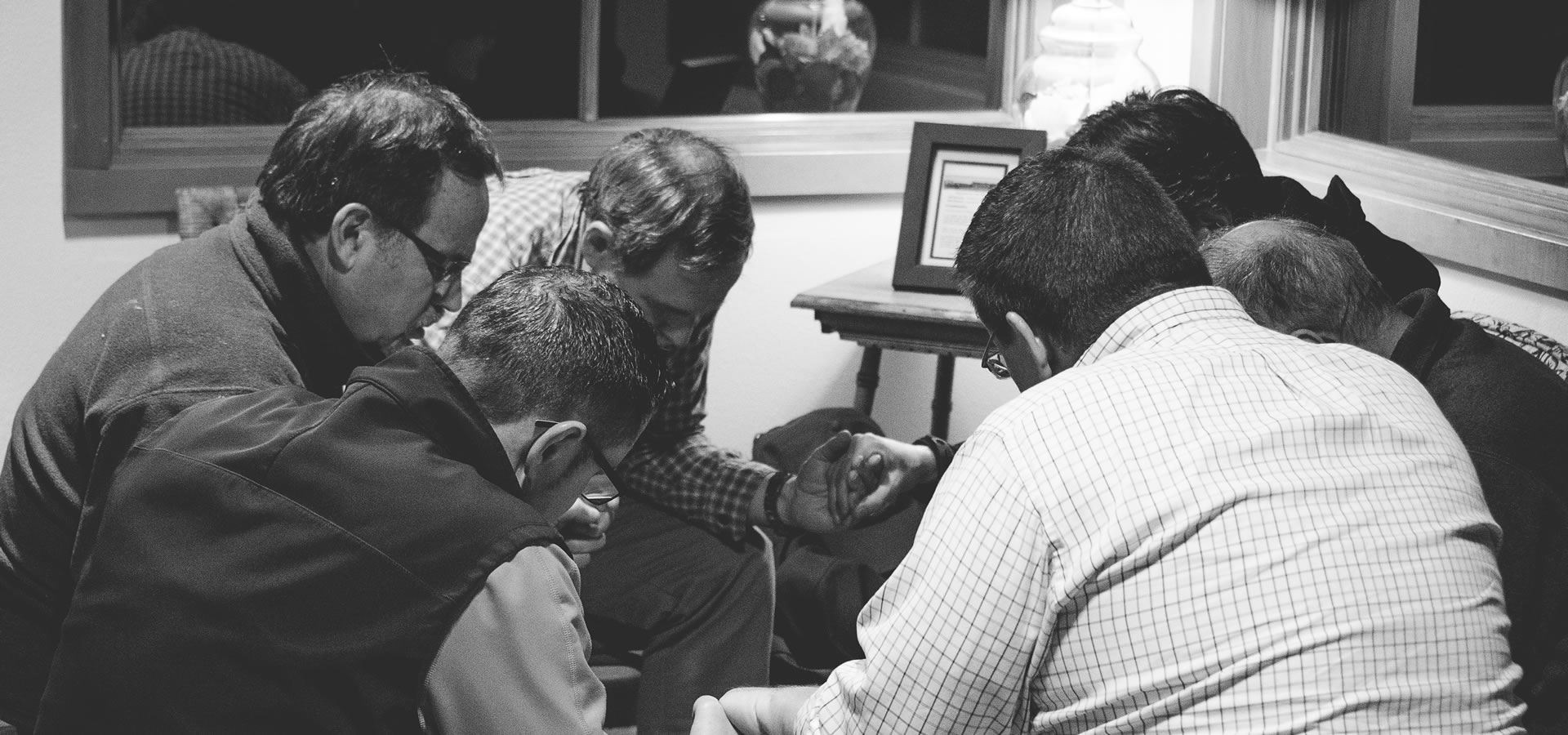Are you looking to spice up your prayer life? Here are some creative ideas on how you can improve your prayer life, ranging from thought-provoking to uplifting.
Community Prayer
Prayer Walking
Prayer walking focuses intercessory prayer on the neighbourhoods, homes and people encountered while walking. Christians who practice prayer walking simply walk their communities, block by block, earnestly interceding for the people living on those streets.
City Prayers
Have your church or small group sponsor a “free prayer” booth in some public place, where people walking by can stop and get prayer for their needs. Take your youth group out to the city mall one afternoon or evening and challenge them to pray with the people walking by.
Pray-doption
Make an arrangement with your local Fire, Ambulance or Police station to cover them in prayer. Set up a “prayer needs” box at the station that you collect each week. Get the names of each officer who would like to be prayed for and have intercessors from your church or cell group adopt them for prayer.
Prayer Business Cards
Print up some business cards offering free prayer for any need. List an email address where prayers can be sent. Include a special Scripture verse on the card.
Pray for Government Leaders
Consider sending a letter to the government officials telling them that they will be in your prayers.
International Women’s Day of Prayer
Open your church for the full 24 hours on the International Women’s Day of Prayer (the first Saturday of March), so that people can come and go at any time of the day or night. Schedule prayer intercessors in two-hour shifts.
Family Prayer
Family Gratitude Circle
After dinner every day, or once a week, go around the table and have each person share something they are grateful for. After you have gone around three times, and everyone has shared three things they are grateful for, have someone lead a prayer of thanks to God.
Hot Seat Prayer
Have everyone in the family get together in the living room once a week. Choose one member of the family as the prayer subject. Ask them what they would like prayer for and have everyone pray over them. It is a wonderful way to build family unity, and a great way to encourage each other, and to keep in touch with each other’s needs.
Lunch Box Surprise
Make a prayer card for your children, print it out and stick it in their lunch box once a week to remind them not only that you are praying for them, but that God is with them. (Or you can make a card for your spouse and put it in their lunch box or briefcase.)
Family Prayer and Share
Meet once a week with the whole family and take some fun Bible time together. Encourage your children to use skits, games or anything interactive that will illustrate or draw attention to a Bible story or principle. Use this time to share special needs, prayer requests, new revelations, or scriptures that you like.
Character Work
During family worship ask each person to share one character trait they would like to work on. Then have the other members of the family pray for that person’s character everyday. Next week, report on the progress and continue to pray, or move on to another trait.
Fridge Prayer
Make a list of things to pray for with your family and post it on the fridge. Pray for each need, and check them off as the answers come through. A great reminder to your kids and yourself that God does answer prayer!
Workplace Prayer
Post-a-Prayer
Make a card, print it out and stick it on the bulletin board at work. Choose a funny photo to get everyone’s attention, and a scripture that will bless them.
Give God a Break
Take your coffee break with God. Get your coffee and take a walk around your office building and pray. Or take your coffee out of the lounge and into your office, shut the door, and pray. Or even better, invite others at your job to join you for coffee time prayer. Pray for your boss, company finances, your family, co-workers, etc.
Target Your Boss
With prayer that is. Set aside a little time each week to pray for your boss and the company business. Then send a thoughtful card to your boss. Let him/her know that you are available to pray for any specific needs they might have.
Personal Prayerlife
Email God
If you have trouble keeping a daily journal, try sending an email to God each day. After writing your email, instead of sending it, just print it, and put it in a binder. Before you know it, you’ll have a daily record of your personal journey.
Red Light, Green Light
Pick a topic for prayer each day, then whenever you come to a red light, let that be your reminder to pray for that need.
Divine Date
Set aside a block of time (two hours or more) each week to get alone with God, apart from your regular prayer time. Let this time be just for you to hang out with Him. Go to a park, or the beach, or somewhere you don’t often go. Make sure you won’t be interrupted. Leave your cares and worries behind, don’t bring any prayer needs with you. Keep this time free from other concerns. Just enjoy God and allow Him to speak to your heart.
Prayer Room
Find a room at home that you can make into a prayer room. If you haven’t got a spare room, make a prayer corner! Furnish it with a comfortable chair, a softly lit lamp, a picture of Jesus, and a basket containing a Bible, short readings on prayer and Bible promises, and Bible promise cards that can be taken along for encouragement when leaving the room. If you have room in your yard, consider making a prayer garden.
Group Prayerlife
Intercessory Prayer Groups
Take time to organise a prayer group dedicated to intercession, and let the Holy Spirit work miracles! Let people know that you are willing to bring their needs before God.
- Offer special prayers for your pastor and his family, especially before each sermon is preached.
- Have a small chest or box available at the front of the churh for prayer request.
Prayer Cards
Distribute intercessory prayer cards. Encourage people to write down their specific requests on the card. Encourage them also to keep a record of God’s answers. Over time, as they see God’s decided answers to their prayers, their faith will dramatically increase.
Prayer Bands
Prayer bands are a channel for God’s blessings to flow through us to others. Follow this step-by-step process to organise your prayer band:
- Invite approximately 3-5 people to join your prayer group.
- Appoint a time to meet each week.
- Give each person an opportunity to share their prayer requests.
- Read a Bible text about God’s promises to hear and answer our prayers. Share some of the requests you will seek God for on this particular occasion.
- Kneel and pray together, seeking God aloud.
- In conversational prayer, give each individual an opportunity to affirm the prayers of others in the groups, and intercede before God for their request.
- Allow some time for quiet, personal prayer at the end of each session.
Prayer Chains
- A prayer chain consists of about 5-7 people and a prayer leader.
- As a prayer request is given to the prayer leader, the prayer leader will contact the next person in the chain.
- Each prayer chain member makes contact immediately with an assigned person until everyone is reached.
- There can be any number of prayer chains in a church community. If a church has several prayer chains, appoint a coordinator to liaise with the pastor to distribute prayer requests to the individual prayer chain leaders.
- Within a matter of minutes dozens of prayers with very specific requests can be sent to God.
Prayer Partners
Choose prayer partners in your local church, matching mature Christians with new members or youth. Or, find prayer partners in other parts of the world.
Sunrise Prayer Service
Consider having a sunrise prayer service, either as a church or as a prayer group. Take time to enjoy the beauty of God’s creation, and praise Him for its magnificence.
Prayer Garden
Create a prayer garden at your church. Appoint people to lay plans for the garden and make a budget. Make assignments to persons who have gifts in gardening, concrete work, wood work, etc. Plan a dedication for the prayer garden. Invite people of other faiths in your community to use the prayer garden. If there’s no room to make a prayer garden, consider making a prayer room.







